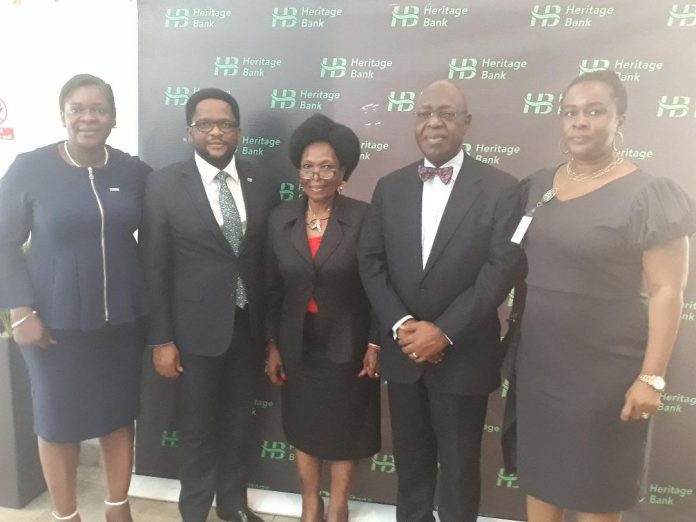
Heritage Bank Plc, Nigeria’s most innovative banking service provider, has hosted the May 2018 edition of the banking technique and practice meeting of the International Chamber of Commerce Nigeria (ICC).
The meeting held at the Victoria Island Office of the financial powerhouse attracted representatives of the ICC Nigeria as well as the experts on the trade desks of different banks operating in Nigeria and the apex bank in the country, the Central Bank of Nigeria.
Welcoming the team, Mr. Dimitiri Dike, Chief Risk Officer for Heritage Bank, noted that the current dynamics in the trade and commerce nationally and internationally deserves urgent attention. He stated that policy summersault and the need for reviews of operation systems has posed a lot of challenges that the visiting team needed to look into and proffer appropriate solutions.
Dike charged the trade experts to review the new global order of international trade that now encourages an open account method of transaction in the global trade.
An open account transaction in international trade is a sale where the goods are shipped and delivered before payment is due, which is typically in 30, 60 or 90 days. Obviously, this option is advantageous to the importer in terms of cash flow and cost, but it is consequently a risky option for an exporter.
Responding, Chief (Dr.) Raymond Ihyembe, Chairman, ICC Nigeria Banking Commission, warned that steps must be taken to tackle the possible effects of the current policy.
This, he said, becomes imperative in view of the fact that Nigeria’s economy depends solely on crude oil. According to him, any massive drop in the price of crude oil in the global market usually affects the aggregate economy greatly.
Ihyembe therefore said in such instances trade and commerce, which is supposed to be the safety net for the nation is again facing turbulence as a result of policy change.
Corroborating the chairman’s views, Dr. (Mrs.) Omolara Akanji, Vice Chairman, ICC Nigeria, Banking Commission, advised banks in Nigeria to always attend the global ICC events where policies are formulated. She expressed concerns that Nigerian banks were not at the ICC Banking Commission meeting held in Miami, USA in April 2018, where modalities of the new policy were discussed.
According to her, their presence at such occasions would have helped to re-shape their orientation about the kind of reviews and adjustments their current structures require.
Meanwhile, the bankers present were of the opinion that they were aware of the new policy, but their common fear is there is currently a gap between the apex bank and the Nigeria Customs. They said banks relate with the documentation presented by exporters and importers, while Customs relates with the goods involved. With this, they said, banks are incapacitated to some extent.
Meanwhile, to address the deficiency, the chairman suggested inauguration of a special committee that will review the status quo and then come up with the treat, risks and opportunities of the current policy.
The suggestion was unanimously agreed to and the special committee comprising five banks was given three weeks to submit its recommendations on how to mitigate the risk of open account policy in the international trade.

